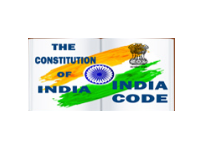Gist of suggestions received
Annex 5
| Gist of suggestion | Comments |
|---|---|
| Transparent Placements | |
| Selection for posts should be through open competitions organized in a fair, transparent manner in place of the current secretive system. | This concern has been partially addressed by proposing that all vacancies for placements at the Centre would be put on the net and the empanelled officers would be asked to give their preference for placement upto 3 choices. |
| Global openness in the matter of ACRs should be in place | It is proposed to make the PAR system transparent by showing the full assessment to the officer being reported upon |
| Transparency should be limited to the assessment on self-assessment and views on targets and achievements. The general assessment need not be shown as it may lead to acrimony. | |
| Transparency should be limited to the assessment on self-assessment and views on targets and achievements. The general assessment need not be shown as it may lead to acrimony. | |
| Cadre controlling authority must make its decision making process about placement and training of officers more transparent | |
| Transparency will be conducive to greater objectivity. | |
| Feedback and Counselling | |
| Provide feedback mechanism | Under the proposed system, there would be a counseling session when the PAR is being shown to the officer and the annual work plan is being agreed upon. |
| The ACR should include a counseling session. | |
| ACR not being utilized for counseling or alerting management on performance improvement skill upgrading or need job change. | |
| Corrective or suggestive comments should be shared with the appraisee before submission of the CR by Reporting officer. | |
| Work Plan and output | |
| Target setting should be followed | This is being proposed |
| Target fixing by mutual discussion should either be strictly enforced or removed. | |
| Some part of Performance Appraisal should be against pre-set work plan with weightage of more than 50%. | |
| Timely submission | |
| A way out of the problem on non-timely recording of CRs should be found | This is proposed to addressed by (a) prescribing a strict time schedule and (b) certification by the reporting officer that he has initiated the PARs of all his subordinates before he initiates his own PAR |
| Timely submission of CRs should be enforced for all superior officers with a provision of an adverse entry in the ACRs of the superior officer in case of delay. | |
| Staggering of CR writing at different levels. | The proposed system addresses this suggestion |
| Training | |
| Performance during long-term training should count towards empanelment and promotion | It is being proposed that performance during training finds a place in the PAR. It is also being proposed that the efforts made towards building competence be taken into account for promotions, domain assignment and empanelment. |
| Training needs of the officer should be identified by a Review Board. | |
| Little attention paid to training needs | |
| 360 degrees appraisal | |
| Should include other aspects viz. Report Card studies, Peoples perception studies, media feedback analysis reports and anti-corruption and vigilance reports etc. | A proposal for setting up of a committee of elders is being recommended to provide feed back from outside the system on the officer being reported upon. |
| 360 degree evaluation of officers in the super time scale | |
| 360 degree appraisal should not be introduced | |
| Format/Attributes | |
| Drastic simplification of the form required with the reporting officer writing a short pen picture followed by an overall grading. | The form has been simplified for the reporting and review officers to the extent that instead of descriptive assessment of various attributes, numerical assessments are being proposed followed by a pen picture and an overall grading. |
| Any innovative idea/scheme conceived and implemented by the Officer should find place in the PAR | The officer can include this in the self appraisal. The Pen picture by the Reporting officer would also reflect any innovative schemes implemented. The Personal attributes also include an assessment of innovativeness. |
| The proforma should also make provision for the specialized skills in the field of research and other elements specific to Forest Service | The IFoS association feels that the attributes identified by the Group take care of all aspects of functioning of IFoS officers. |
| The appraisal of Indian Forest Service officer should also include appraisal with regard to field visits and Inspection within the officers jurisdiction | |
| Accepting authority is unnecessary. | It is proposed to remove the third level of “Accepting Authority”. |
| Appraisal during the first 5-10 years of service should be to build human resource. | This principle has been accepted. |
| Weightages | |
There should be a weightage system in the C.R.
| Weightage has been recommended for different aspects of performance appraisal, such as (i) performance at work, (ii) richness of experience, (iii) exceptional work done and (iv) demonstrated skill for higher responsibility. Group has also recommended a system of interviews for empanelment. An assessment of process indicators across job types would be a complicated exercise and is hence not recommended till a satisfactory formula for such assessment is developed. |
| Weightage given to ACRs and interview should be equal or more for interviews so that the variances in the ACRs on account of factors other than performance can be moderated. | |
| Skill upgradation | |
| Upgradation of competency should be once every 3-5 years | Mandatory in-service training has been recommended. |
| Integrity | |
| Integrity if not good, grading should be average or below average and any negative aspect of integrity should be adequately substantiated | Current provisions relating to integrity have been retained. |
| ACR of a bureaucrat should reflect the Corruption aspect and include if the officer was effective in preventing corruption. | |
| Grading | |
| Very good/outstanding should be considered equivalent since the margin may be very thin between the two and the culture of writing CRs in State Governments vary | A system of numerical grades has been proposed. Computerisation of the performance appraisal system has also been proposed. One of the possibilities through computerisation would be a more scientific moderation of variations in the culture of writing performance appraisal reports. |
| Since a number of grades such as Very Good, Good, Average are not good enough for various purposes, only two grades, namely Good and Bad should be there. | |
| For grading of below average or outstanding, a description of specific shortcomings/ achievements should follow | It has been provided that for poor and outstanding grades, clear justification should be provided with references to specific failures/accomplishments. |
| Adverse comments should be read out or communicated to the officer by the Reporting officer himself and his reply/representation should be incorporated in the CR itself. The next higher authority should then decide on whether to expunge the adverse | The proposal is for the entire performance appraisal report to be shown to the appraisee, after review. |
| Grading column in the ACRs should be done away with while retaining the subjective nature of the ACR. Alternatively, numerical system should be adopted. | The Group discussed the issue of doing away with an overall grade. However, it was felt that since the reporting and reviewing officers had a close knowledge on the abilities of the officer, there should be a provision for an overall grade to be recorded by them. |
| Reporting officer/reviewing officer should be precluded from grading the officer. | |
| Empanelment | |
| Empanel everybody unless serious charges are pending against an officer or whose less than 75% CRs are in outstanding/very good | This has not been agreed to, as it would accentuate complacency and mediocrity at the highest levels. In fact, a more rigorous empanelment procedure is being proposed. |
| Empanel officers statewise in proportion to number to be empanelled and officers of the batch in the particular State Cadre. | Empanelment being merit based, the concept of reservation would not be acceptable. |
For Empanelment
| A more rigorous empanelment procedure is being proposed, with an interview through the UPSC. |
| Promotion/empanelment should be on the basis of ACRs and interview by neutral panel comprising of officers whose State cadres are different from that of the officer | |
| Empanelment should be a selection process rather than elimination process based on ACRs alone | |
| High benchmark for empanelment as Joint Secretary | |
| Every five years, all reports to be considered by a small Group of officers senior to the officer reported upon. The Group of officers would bring a balancing impact into the Performance appraisal system and produce one report on the officer encapsulating his performance in 5 years | The Group does not agree to this as it would be extremely complex to implement |
| Postings should be decided based on an officers domain knowledge | A new system of streaming officers at the super-time scale is being proposed so that postings can be decided based on an officer's domain knowledge. |
| Review by Board | |
| Review by Review Board of PAR of officers of the level of Secy in the State and JS./Addl. Secy at the Centre. | This is a good suggestion and was discussed by the group. It was, however, felt that in the present context this might not be practical. However, this could be considered for adoption after the new system stabilizes. |
| Promotion | |
| Promotion/empanelment should be on the basis of ACRs and interview by neutral panel comprising of officers whose State cadres are different from that of the officer | A system of interviews, through the UPSC, is being proposed for empanelment. Similarly, it is being suggested that the Screening Committee for recommending promotions should include an officer from a different State cadre. |
| In the DPC, outside members should be associated | |
| Introduction of other parameters in addition to CRs should be introduced for promotion | This is being proposed for promotions at certain levels. |
| Other comments | |
| Stronger outward accountability is essential for greater responsiveness to the needs of the public and thus to improved service quality. | Evaluation of a special attribute, namely “Citizen Focus” is being included |
| For Additional Secretaries and Secretaries and for officers having completed 30 years of service, there should not be any PAR/ACR | This has not been agreed to. However, a simpler form is being proposed for Secretary level officers |
| Performance appraisal of officers should be made upto Secretary and not the political executive. | This has not been agreed to. However, by removing the third level of evaluation, the political executive will be excluded for several lower positions |
| Adverse comments should not be decided by the authority who made the adverse remarks. | There is a provision for representation against such remarks and hence decisions are taken at higher levels |
| Instead of focusing on professional papers, the focus could be on any papers written by the officer including newspaper articles, internal policy papers, reports of committees and task forces, etc. | Expectation of papers is only after about 12 years of service. The officer could highlight all papers written by him. This is being clarified in the proposed guidelines. |
| The final grading of the Reviewing & Accepting officer should be communicated to the concerned officer. | It is being proposed that the entire report, after review, should be shown to the officer. |
| Time limits should be specified for different stages of the appraisal process. | This is being done. |
| A detailed procedure for appeals should be set out and a decision taken regarding the number of appeals permitted. | The entire system of representations is proposed to be internalized in the performance appraisal reporting system by providing for any representations received, after the appraisee has seen his report, to be placed before a Referral Board. Decision of the Referral Board would be final. |
| Past court/CAT judgments will need to be kept in view while formulating the new guidelines. | To the extent possible, this has been done. However, in case any of the recommendations of the Group are not in conformity with past court/CAT judgments, it is presumed that the Department would take this into account while taking a view on the recommendations. |
| A separate committee may be established, consisting of 2-3 Joint Secretaries and a representative of the UPSC, for framing fresh guidelines. The Additional Secretary, DOP&T, may head this. | A set of guidelines is being proposed along with the recommendations of the group. However, the Department may like to take a view on working out further details, through a committee headed by the Additional Secretary, DOP&T. |
| It would be worthwhile to instituting a system whereby the subordinate officer assesses the performance of his senior at the level of Joint Secretary and above in the Government of India and Secretary and above in the State Governments. This need not have a bearing on the annual performance review but should be a feedback made available to the concerned officer for better self-appraisal. | This is a good suggestion and may be considered by the DOP&T, outside of the performance appraisal system. |
| A major effort is needed on advocacy/orientation n the new system proposed to be introduced. | This is essential and will be needed to be taken up by the DOP&T. |
| Emphasis may be laid on innovativeness by the appraisee to improve services to the people, human resource management practices, office management practices, training and development of subordinates, networking with other organizations, technology adoption for improvement, image of civil services, etc. | An attribute on innovativeness has been introduced in the performance appraisal proforma. The guidelines amplify that such innovativeness should include the items being suggested. |
| The format on annual work target and achievements should be developed in the beginning of a year and subsequently quarterly reviews should be done. | This has been proposed. However, instead of quarterly reviews, a mid-year review has been suggested. |
| Report should be reviewed by a Board instead of a single officer. | The Group discussed this issue. The Group felt that in the present context this might be somewhat impractical. However, the idea is a good one and should be considered for implementation as a further improvement, after the new system has stabilized. |
| The system of postings is a relic of the past. Officers should be slotted into streams with specialization. | This suggestion is being proposed for implementation. |
| There should be a provision for recording advisory remarks, which need not be circulated when empanelment is being considered. | This issue was discussed in the group. It was felt that such advisory remarks could be communicated outside the performance appraisal report. In case such advice is not adhered to, the reporting/reviewing officers could record it in the performance appraisal report as an adverse comment. There is, thus, no need for an advisory portion in the performance appraisal report. |
| In order to avoid undue pressure on the reviewing officer, the level at which the appraisee may be shown the comments of the reporting officer can be raised to that of reviewing officer. | It is being proposed that the report may be shown to the appraisee after the review stage. |
| Criteria for placement should be made transparent to avoid many of the pitfalls of the present system. At a certain level, the area of interest / specialization of the officer should be ascertained and the officer placed in such a stream. | A system of streaming officers into different areas of specialization is being proposed from the super-time scale onwards. |






 कार्मिक एवं प्रशिक्षण विभागDepartment of
कार्मिक एवं प्रशिक्षण विभागDepartment of 













